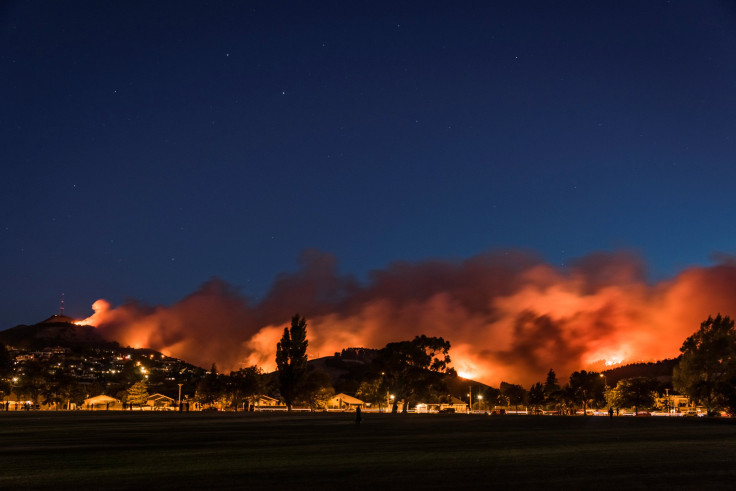Fires In The US: More Than 80 Percent Of Wildfires Started By Humans, Study Reveals

Humans are to blame for the cause of most wildfires, having started 84 percent of wildfires within the past two decades, a study conducted by researchers at the University of Colorado Boulder revealed. The results, published Monday in academic journal “Proceedings of the National Academy of Sciences,” found that humans sparked over 840,000 wildfires through a 21-year span.
The researchers assessed U.S. government agency wildfire data recorded from 1992 to 2012 and studied a total of 1.5 million wildfires. They found that people caused an average of 40,000 wildfires yearly throughout the spring, fall and winter, igniting more than 35 times the amount of fires started by lightning.
“There cannot be a fire without a spark. Our results highlight the importance of considering where the ignitions that start wildfires come from, instead of focusing only on the fuel that carries fire or the weather that helps it spread. Thanks to people, the wildfire season is almost year-round,” said the study’s lead author, Jennifer Balch, director of CU Boulder’s Earth Lab.
Wildfires can breakout easily, where anything from campfires to dropping a match can ignite a conflagration. These blazes are enabled by winds that can transfer embers and spread flames to other areas. Massive wildfires can also create their own winds hitting up to 120 mph, according to CNN.
These fires have the potential to cause a lot of damage, clearing on average 4 to 5 million acres of land every year in the U.S. While the study discovered that humans cause a majority of wildfires, nature also plays a role in the ignition. Droughts and dry weather cause crops to become flammable, increasing the likelihood of combustion.
“[Our] findings do not discount the ongoing role of climate change, but instead suggest we should be most concerned about where it overlaps with human impact. Climate change is making our fields, forests and grasslands drier and hotter for longer periods, creating a greater window of opportunity for human-related ignitions to start wildfires,” Balch said.
To stop or control wildfires, firefighters typically utilize fire retardants to quench flames. Firefighters also get rid of flammable crops before they catch sparks to prevent wildfires from rapidly spreading. California, Colorado, Washington, Wyoming and Oregon undergo some of the worst wildfires in the country, with conflagration having the potential to spread for miles.
© Copyright IBTimes 2025. All rights reserved.






















